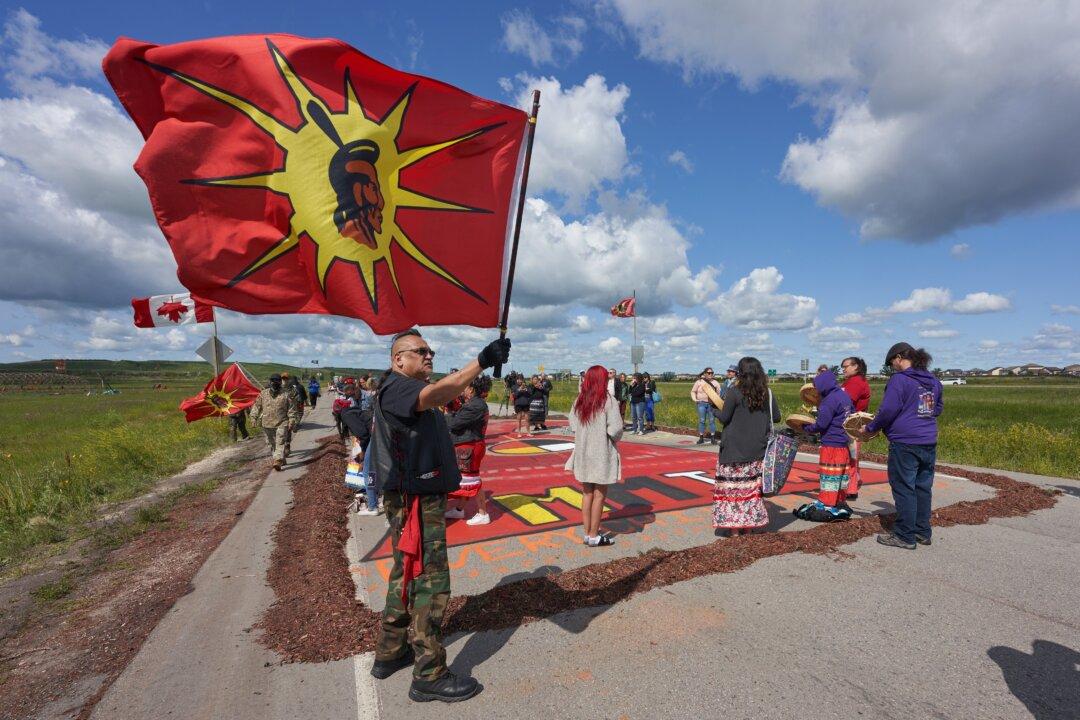Activists blockading a Winnipeg landfill site have promised to continue their protests after police carried out a court order to dismantle the blockade on July 18 without incident.
“This is nothing. There‘ll be another blockade. We’ll blockade railways. We‘ll blockade highways. We’ll do whatever we have to do to keep this in the news, to keep this cause alive,” protester Harrison Powder said at the Brady Road landfill site on July 18, after the blockade was dismantled.





